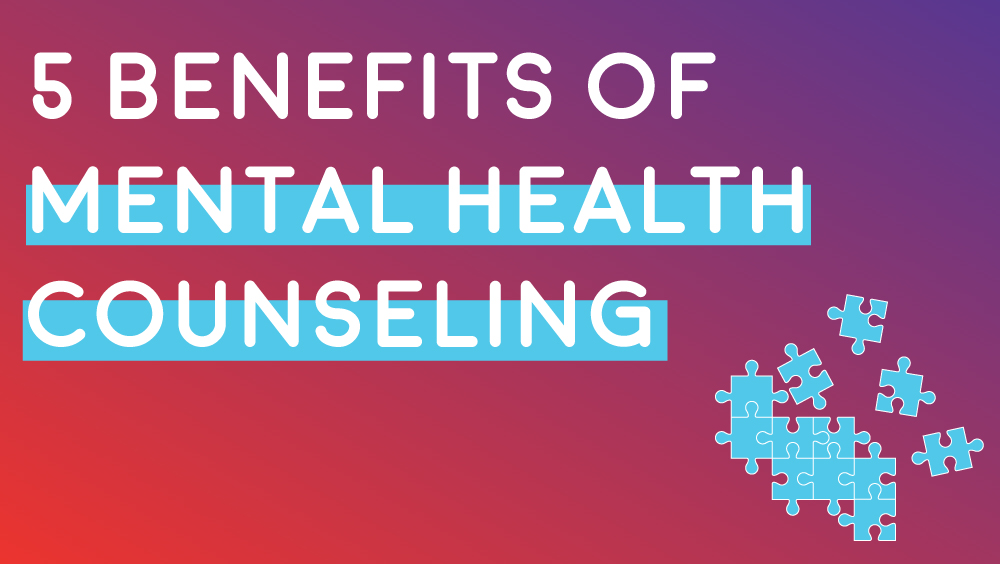The Main Principles Of Mental Health Counseling
Table of ContentsSome Known Incorrect Statements About Mental Health Counseling Not known Factual Statements About Mental Health Counseling Rumored Buzz on Mental Health CounselingThe Facts About Mental Health Counseling UncoveredThe 6-Second Trick For Mental Health Counseling
Through therapy, you can gain insight into your own patterns of behavior and interaction, which can bring about more meeting and pleasing connections with good friends, family, and charming companions. What we think, we manifest. If you're eaten with negative feelings and adverse ideas that are hindering your life, treatment can assist., or there are other unfavorable ways you act. Therapy can help you modify those habits that are having a negative influence on your world and relationships.

The importance of treatment exceeds your psychological health. Obtaining therapy to resolve specific aspects of your life can aid you be much more productive in other areas, consisting of work. Some study has also shown that there's a straight correlation in between looking for mental wellness help and a decrease in missed work.

What Does Mental Health Counseling Do?
You can see a specialist when points are going truly well in your life, or when you're concerning to experience a big life shift." Talkspace therapist Kate Rosenblatt, MA, LPC, LMHC. There are also much more benefits of therapy than just the ones we have gone over. Treatment can instruct you exactly how to manage divorce, handle despair, or build relationships (enchanting or those with family or good friends) in a healthy method.
For the purpose of the existing research, regarded benefits and obstacles to psychological health and wellness help-seeking are being checked out. Previous research found that viewed barriers have a substantial result on university student' health actions selections (Von Ah, Ebert, Ngamvitroj, Park & Kang, 2003). Viewed benefits and obstacles to help-seeking were particularly chosen as a result of their impact on decision-making and ultimately activity (Glanz, Rimer, & Su, 2005).
The existing study seeks to check out whether or not stigma serves as a barrier to therapy amongst university students. Among these were: (1) liking to deal with psychological health problems themselves, (2) not having adequate time to participate in treatment, (3) inquiries about whether psychological wellness treatment is reliable in remediating problems, (4) an idea that anxiety is regular or the problem will certainly obtain far better without treatment, (5) lack of money, and (6) fret regarding what others would certainly assume if they located out concerning treatment participation.
Personnel in campus mental wellness facilities may be perceived as unfriendly, and long wait times for solutions might be "off-putting" for students. Variables promoting extra positive attitudes are frequently at the opposite post of those aspects identified as barriers.
Getting My Mental Health Counseling To Work
One in 3 (34.6%) reported residing on campus and one in four (23.3%) reported living with moms and dads. Virtually fifty percent of trainees were associated with campus companies and 1 in 10 reported remaining in a society or sorority. Greater than one-third of students (38.1%) reported that they had a member of the family or pal with an identified mental health and wellness condition.

The 2-Minute Rule for Mental Health Counseling
Univariate F-tests identified specific subscale items that considerably differed. Women were less likely than males to perceive individuals who most likely to therapy as emotionally weak, people that go to counseling as crazy, to feel that individuals with psychological illness need to take care of troubles on their very own, that people who go to counseling as unable to address troubles, that people who go to counseling are lazy, and to feel that people that go to counseling are various from regular people in an adverse way.
Likewise, research study results disclosed that women were considerably less most likely than males to hold stigma-related perspectives. This follows previous research study which also discovered that men hold higher degrees of regarded stigma than ladies (Chandra & Minkovitz, 2006). Based on study searchings for, it appears that males might be less likely than women to look for treatment because of reduced perceived obstacles along with high stigma-related mindsets.
The Only Guide for Mental Health Counseling
In addition, university wellness professionals might provide academic programs targeting males with details on the advantages of mental health therapy and the value of seeking aid when required., the present research study discovered no significant distinctions in the number of viewed barriers to help-seeking habits based on sex.
This finding was unanticipated and might highlight that those that had obtained counseling had a better concept of this wait times and various other "accessibility" obstacles that may make it challenging to start treatment. Probably, participants that have gotten therapy sight a lot more barriers than participants that have not gotten counseling since seeking therapy services again can involve concern of self-disclosing individual information her comment is here to a new therapist.